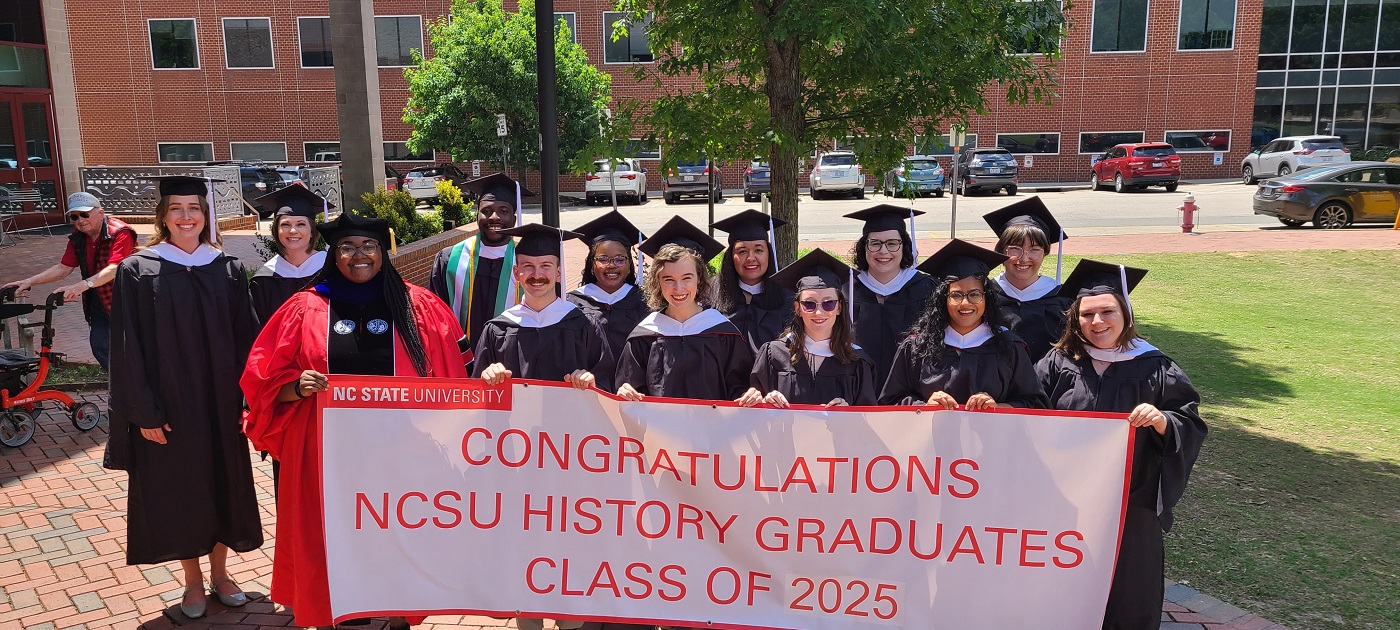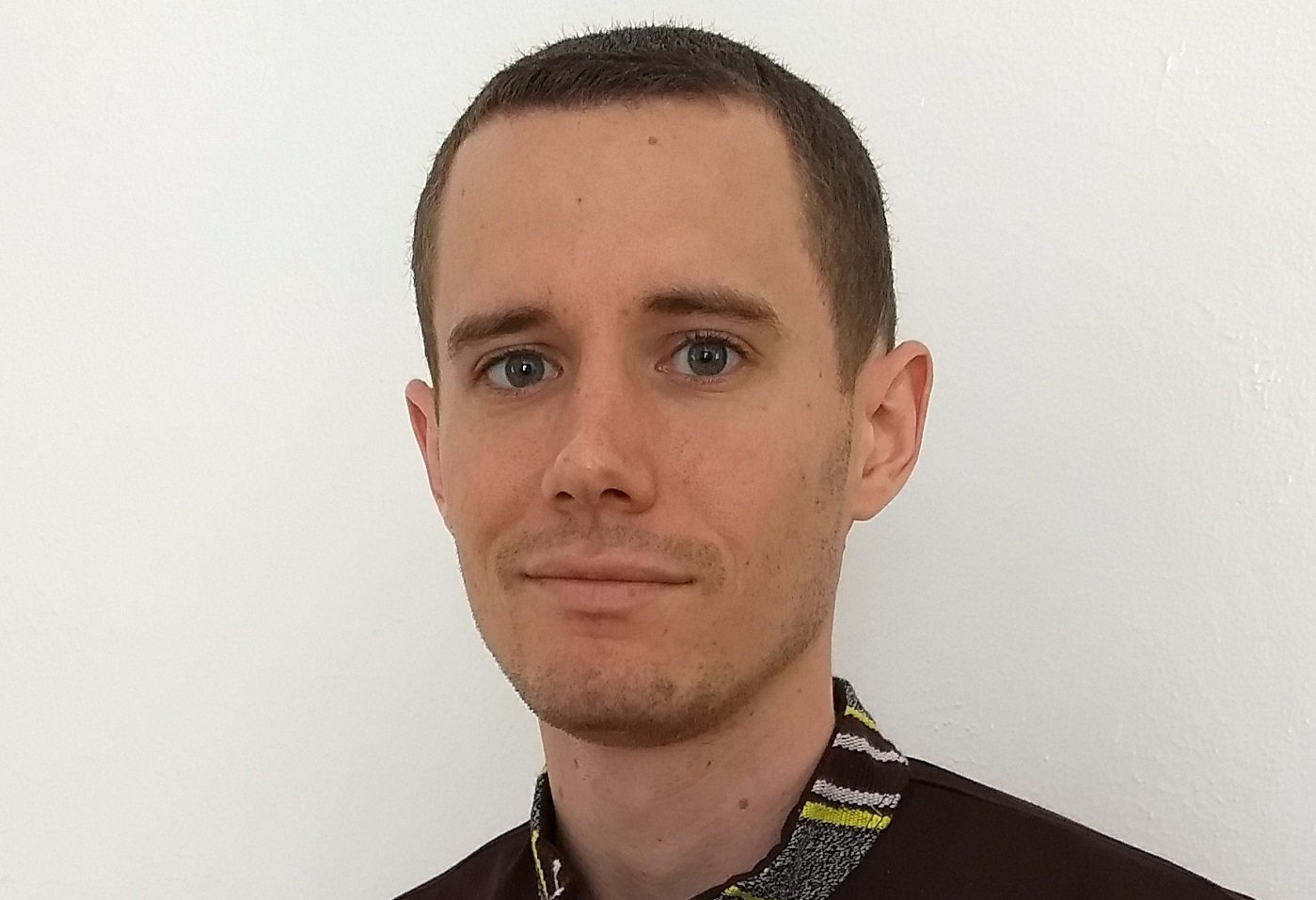Meet our Alumni: Sarah Soleim ’21
As Sarah Soleim was pursuing her PhD, she was hired as the Manager of Community and Academic Learning at Wake Forest Historical Museum in 2019. She graduated from the Public History PhD program in 2021.
 Tell me about your position at Wake Forest Historical Museum
Tell me about your position at Wake Forest Historical Museum
We’re in Wake Forest, North Carolina and the museum is owned by a nonprofit society that was founded after Wake Forest University (WFU) left Wake Forest, North Carolina and moved to Winston Salem. Over the years, the relationship between the university and the nonprofit has evolved, but all of the museum staff are Wake Forest University employees. My position was created to expand educational programs in both in the town of Wake Forest and at Wake Forest University. Day to day, I am working to develop new programs at the museum like lectures, tours, walking tours, and exhibits. I’m also working with faculty and students at the university to develop opportunities for them to explore the institution’s history, primarily related to the Slavery, Race and Memory Project, which was an initiative created in 2016 to explore the university’s historical connections to chattel slavery and the Atlantic slave trade. WFU needed a position dedicated to students and faculty interested in incorporating the institution’s history into their curriculum and research, specifically the built history that still exists in and around the school’s original campus in the Town of Wake Forest.
Does Wake Forest University have a public history program?
They have an interdisciplinary minor in Cultural Heritage & Preservation Studies.
How do you feel your degree prepared you for your current role?
If I could have created the perfect job for me, it would have been this one. I wanted to be in a museum with a research-centered approach to programming. I wanted to do original research. I have always been drawn to institutional research, and the practical and intellectual development of education, which is what my dissertation explored in relation to public history education. I also think the breadth of NC State’s public history program – with its rigorous courses in US history, historic preservation, and museum studies gave me the skills to be able to work with and collaborate in an interdisciplinary field. Every day, I work with historians; I’m working with anthropologists; I’m working with historic preservation professionals, city planners, and parks & recreation specialists. NC State’s Public History program prepared me to engage across disciplines.
Is there room to move up in your job?
My goal is to stay within a museum setting, but I have the opportunity to teach Historic Preservation next semester in Winston-Salem. Much of my work is increasingly grant writing so I look forward to getting back into the classrom. I think there’s a lot of room for me to grow in this position, which is really nice.
 Tell me about one specific project that you’re working on right now?
Tell me about one specific project that you’re working on right now?
I’ve been working closely with a grassroots organization called Wake Forest Community Table. It initially started as a free summer meal program in Wake Forest’s historically African-American neighborhood. That program expanded and they now provide meals twice a week throughout the year. They have cultivated a great and vibrant organization of volunteers and participants who are both food insecure and food secure. The program’s founder, Joy Shillingsburg, a former high school teacher, began hosting film screenings and lectures that explored the historical, legal, political, and economic conditions that necessitate their food distribution program.
In 2022, Joy reached out to me and suggested we collaborate on a program since I was exploring the history and legacy of slavery as it relates to the Town of Wake Forest and Wake Forest University. That led to the creation of a walking tour exploring the Black experiences on Wake Forest University’s original campus, which is now the property of a Southeastern Baptist Theological Seminary. I brought Wake Forest faculty and Joy brought 80 community members. We ended the night with roundtable conversations about our research and how it relates to the work of Wake Forest Community Table. Since then, we’ve collaborated on three programs, including a program for high school students. I really appreciate being part of this great organization, and I am proud of how the museum and university are supporting their work. I’ve learned that I don’t need to create a desire to learn and engage with the past–that desire is there. I just need to make sure our organization is asking the right questions.
Did you have to get approval to do projects like this? Or can you just say, I’m going to do this?
This is the type of community engagement that I think many universities and museums want to achieve. It takes time, staff, and a realistic assessment of institutional values, but when done right it can become the foundation of our institutional missions. WFU’s mission, Pro Humanitate, is about using our knowledge, talents, and compassion to better the lives of others. It really fits well with the “Think and Do” mission we cultivate at NC State.
Do you have staff under you?
We’re a small staff, so no. I have some great interns though. One of my goals is to expand frontline and interpretive staff positions. As a university museum, we want to create entry-level positions and opportunities for students coming out of programs like NC State or the minor program at Wake Forest University.
What made you choose NC State?
When I was looking at programs, I wanted one that had connections in the community. I also wanted a program near a state capitol, because I knew there’d be a lot of energy for historic preservation.
Why should a prospective Public History student choose NC State?
There’s a lot of institutional support for the Public History program, and that makes a huge impact on funding opportunities. At the heart of this institution is a commitment to extension, community engagement, and lifelong learning. I love NC State’s “Think and Do” motto. It embodies how I think public historians, or really any professional, should move forward in life. Think! But don’t get stuck thinking; the world doesn’t require perfection. As a prospective student, it’s important to consider how your university thinks about the community. What is the university—it’s students, faculty, administrators, alums, donors, etc.—doing to support the health of the community that surrounds them?
- Categories:


